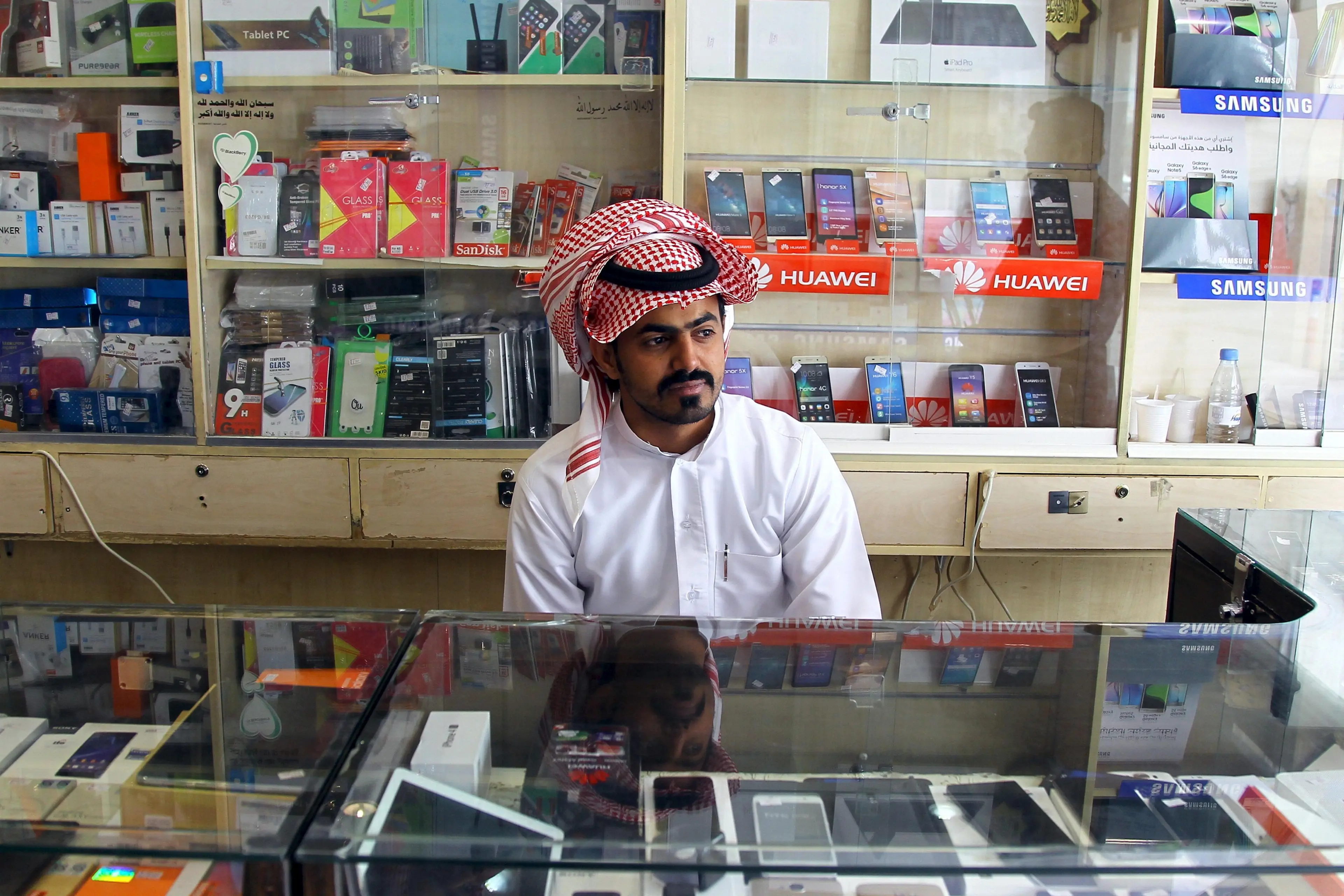PHOTO
Private sector firms operating in Saudi Arabia anticipate that a new amendment to the existing labour market system, ‘Nitaqat’, will keep their localisation targets in compliance in a much quicker time-frame.
Earlier this month, the Saudi Ministry of Labor and Social Development (MLSD) announced that the number of new Saudis employed in a firm will be reflected instantly within quota targets for ‘Nitaqat’, a scheme which sets mandatory levels for the number of Saudi nationals employed within companies. Currently, changes to the number of Saudis employed take six months to feed through to official data. The new amendment is set to take effect starting 2 February 2019.
“The changes are likely to be looked upon favourably by private sector employers, particularly against the backdrop of increased localisation initiatives in the GCC,” Anir Chatterji, a director in PwC’s Middle East Immigration & Employment team, told Zawya in emailed comments.
“Companies will be able to hire foreign nationals faster as their Nitaqat rating will be updated close to 'realtime'. This provides room to hire foreign nationals which, depending upon employer size and industry, is likely to assist with business continuity and performance,” he said.
“A company’s Nitaqat ranking is an essential part of doing business in Saudi Arabia. Non-compliance or a low rating can limit the opportunity to hire new expatriate employees, renew work permits, or open a new business or branch in Saudi Arabia,” he added.
On why the Saudi authorities decided to introduce this amendment to its ‘Nitaqat’ program at this current time, PwC's Chatterji notes that investor confidence generally – against the global economic climate – is still not at the level it used to be.
“The objective behind this change is likely to increase investor confidence by easing the ability for businesses to meet and service labour demands faster,” he said.
“Saudi Arabia is keen to push ahead with its Vision 2030 and key to the success of this is providing more flexibility for businesses to operate in the Kingdom and, importantly, hire labour quickly and smoothly, whilst at the same time, meeting localisation requirements," he added.
Earlier this month, Saudi Arabia extended the validity of work visas for expatriates to two years, instead of the previous one-year period, without any additional fees. Authorities said the aim of the decision was to reduce obstacles for private sector firms and ease processes for businesses. (Read more here).
Private sector firms in the kingdom are facing rising costs after the government introduced a tax on expat dependents in 2017, pushing a large number of foreigners to leave the kingdom or send families back home. And while the Council of Saudi Chambers (CSC) called for exempting small businesses from the expat levy in their early years, the Saudi finance minister affirmed last month that there is no intention of changing the policy of expat fees.
“High on the Saudi government agenda has been a progressive increase in the number of Saudi nationals in the private sector,” Chatterji noted.
“But we do not consider the changes to significantly affect the unemployment rate among Saudi nationals. However, it might incentivise employers to recruit Saudi nationals in the knowledge that they will meet their Nitaqat rating faster,” he said.
“Equally it might help with retention as when a Saudi national employee leaves the company this is reflected immediately,” he added.
The rate of unemployment among Saudis hit a record high of 12.9 percent in the first quarter of last year, the highest level recorded since 1999, as employers in the private sector faced difficult conditions including the removal of fuel price subsidies as well as the new value-added tax in 2018. (Read more here).
While the rate was little changed during the second quarter of last year, the jobless rate showed a slight improvement in the third quarter, easing down to 12.8 percent, according to the latest General Authority of Statistics report released on Sunday. (Read more here).
Further reading:
- Government to provide cash incentives for private sector to hire Saudis
- Over 500,000 expats quit Saudi labour market in three months
- Saudi reforms encourage investment in Kingdom: Davos panel
- Construction costs in Saudi Arabia gradually creeping up
- What effect have expat fees had on the Saudi economy?
(Reporting by Nada Al Rifai; Editing by Michael Fahy)
Our Standards: The Thomson Reuters Trust Principles
Disclaimer: This article is provided for informational purposes only. The content does not provide tax, legal or investment advice or opinion regarding the suitability, value or profitability of any particular security, portfolio or investment strategy. Read our full disclaimer policy here.
© ZAWYA 2019





















